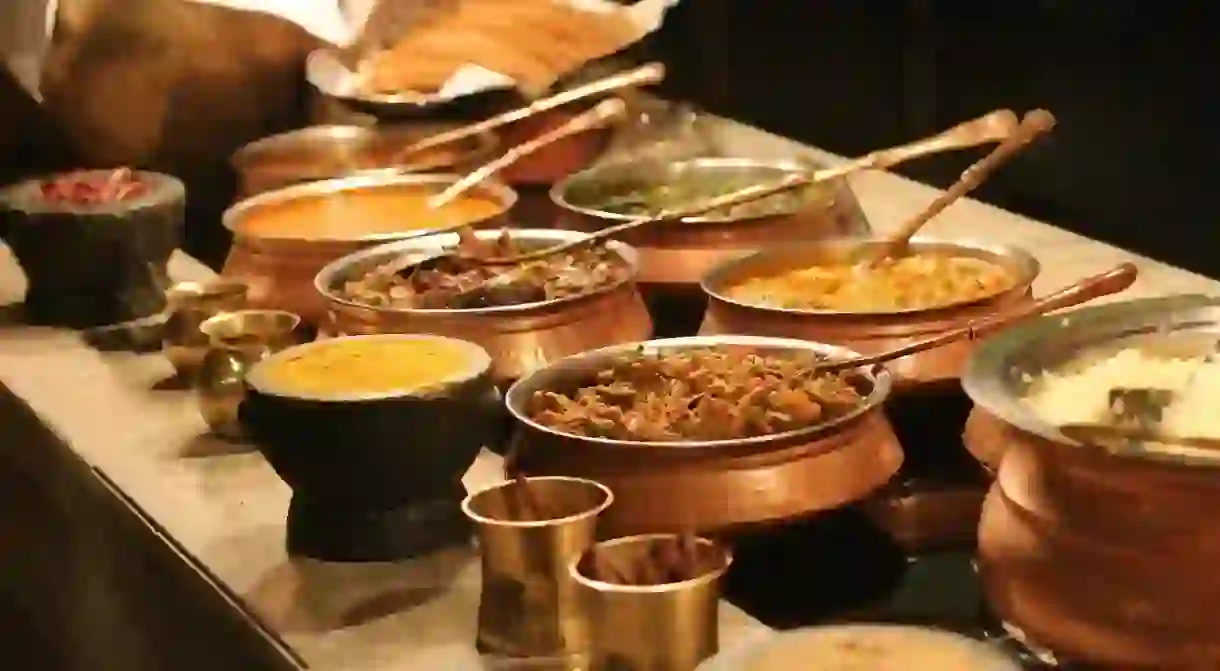11 Traditional Pakistani Dishes You Need to Try

Pakistan has some of the most diverse and flavorful recipes in the world due to the infinite amount of special herbs and spices available, and each traditional dish comes with a deep history that connects it to a particular province. The versatile geography, ranging from deserts to the world’s highest mountain peaks, creates a wide variety of different types of recipes, each with a unique taste.
Biryani
Biryani is a mixture of delicious yellow rice and either chicken or beef. The rice gets its color from an assortment of spices and herbs, which also adds an incredible flavor. To top it off, it contains perfectly cooked lemons, tomatoes, and potatoes.

Chicken Tikka
Chicken tikka is one of the most popular foods in Pakistan, both for its taste and its nutritional value—that is if it is not accompanied by “naan.” It is a sizable portion of chicken slathered in traditional spices and then grilled to perfection. For the ultimate experience, dip the pieces of chicken in the accompanying mint dressing.

Seekh Kabab
Seekh kababs usually feature well-seasoned beef. The grilling method used to cook them gives them a succulent quality. Pair them with some herb-infused rice—you won’t be disappointed.

Channa Chaat
“Channa” means chickpeas, and it is one of the most-loved snacks in Pakistan. In this tasty light dish, chickpeas are mixed with various vegetables, such as tomatoes and onions, and topped with a dressing that creates a bittersweet-eating experience.

Aloo Keema
This dish is served in almost every household in Pakistan because it is an excellent blend of potatoes and minced mutton or chicken curry. It’s simple but delicious.

Samosas
Samosas are a filling snack made out of a flour-coated triangular crust filled with green chilies, an assortment of finely chopped herbs, and boiled potatoes. You can also stuff them with various meats, such as lamb, chicken, and beef mince. These flavorful bites are so filling that you may not want a main dish afterward.

Sajji
Sajji is a dish that can attribute its origins to the province of Balochistan. It is one of the primary specialties of Pakistani traditional cuisine and consists of a large piece of either lamb or chicken stuffed with rice and topped with a tasty green papaya paste. It’s then placed on a skewer and roasted for several hours.

Haleem
Haleem is a mixture of a variety of traditional staples used in Pakistani cuisine, such as wheat, barley, minced beef, mutton or chicken. It is a dish that takes a long time to prepare because the lentils and special spices need ample time to properly combine with the minced beef and create a unique paste that will delight the senses.

Halva Puri
A puri is a type of dough sprinkled with salt and rolled out in a circular form that is then fried in a small amount of oil. It is extremely fluffy and light and comes with a sweet dish called halva—a combination of sugar syrup, egg whites, and sesame seeds. The mixture of sweet and sour flavors results in a memorable dining experience.

Nihari
Nihari is one of the most famous stews in the entire country. It is served to guests on important occasions and contains meat that is slow cooked and simmered in spices overnight. The cooking process allows the dish to absorb the flavorful bone marrow fully, creating one of the best-tasting meat dishes in the world.

Kheer
Kheer is the most famous traditional dessert in the country. It is a rice pudding made of rice, sugar, and milk. It combines an assortment of nuts, such as almonds, pistachios, and cashews, as well as saffron and cardamom to give it an alluring tinge that melts in your mouth with each bite.














